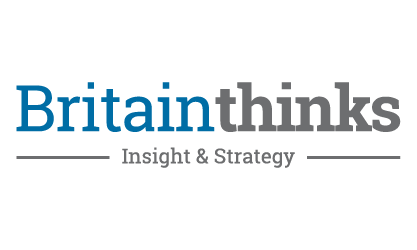
How will customers be spending this holiday season?
LONDON / AGILITYPR.NEWS / December 06, 2022 / Though almost a third of the UK public say they aren’t going to put on the heating even when it is cold to save money, 83% say that gifts for birthdays and Christmas are currently affordable to them. But they are going to be gifting on a budget – looking to buy second-hand and discounted options to spread joy at Christmas after a gloomy year.
Drawing on the latest insights from our Cost of Living Diaries, BritainThinks discovered the actions people are taking to respond to rising costs, how different groups are being impacted, who the public feel is responsible for the current situation, and what they are doing to find some light among the gloom.
These key insights provide vital context for brands, marketers and comms professionals to inform future planning and strategy as you look ahead to your own year and look for the light in the gloom.
Data is drawn from a nationally representative survey of 2,072 members of the public, and qualitative diaries with 20 people from across the UK. Drawing on the latest insights from our Cost of Living Diaries we have found:
· 90% of the UK public rank cost of living as the most concerning current issue. 60% are very concerned about rising costs.
· The public are making sacrifices to be able to afford the things that matter to them, with almost a third (31%) saying they won’t put the heating on even when it is cold, and 1 in 8 (13%) saying they are or expect to start skipping meals to save on costs.
· However, they are prioritising ‘little treats’, because these help to build resilience and hope each day. 8 in 10 (78%) say they still feel able to afford little treats for themselves and their families – and within this tend to be prioritising food and drink or (cheaper forms of) socialising – we heard from the public that:
“[A treat is] a cup of coffee from Nero or Pret, Haribos, a bar of chocolate or fast food breakfast from McDonalds.”
“[We go] out for lunch or tea twice a month as a family for a treat… We wouldn’t be happy if we couldn’t afford to do this occasionally.”
· Wellbeing and health is also being prioritised to help in difficult times, but it must be managed cheaply. Affordable ‘self’ care is a priority for many: ditching gym memberships for free forms of exercise, at-home pampering, and cooking healthy meals from scratch over takeaways, as we heard from one member of the public:
“I’m doing self-care such as face masks… I find myself being more crafty and trying to find cheaper ways of looking after my wellbeing, like going to beauty salons or hairdressers far less.”
· 83% say they could probably or definitely afford to buy a present for a friend or family member, for example for their birthday or Christmas. Even amongst those struggling the most, a majority say they can afford gifts, showing how important this is for human connections. This includes 54% of our ‘Going Under’ typology, and three quarter (75%) of those on low household incomes. But the public have told us they are looking to find low cost ways to meaningfully gift and enjoy Christmas:
“My plans for Christmas in terms of budgeting are far tighter this year. I plan to spend less by layering discounts, offers or sales, shopping local or from sites like Ebay and Etsy and cutting costs by crafting items myself.”
“Xmas plans for us are to enjoy as a family in our household, my family will be joining us and we will be visiting the in-laws for Boxing Day – gifts we will be keeping minimal but meaningful.”
Dr Carol McNaughton Nicholls, Associate Partner commented: "Gifting is about much more than the item being shared, it is about social bonds and relationships. After a tough few years our research shows the importance being placed on maintaining these social connections and positive rituals, even in the face of having to cut back on essentials.
Of course no one should feel they should buy gifts they cannot afford, the main message from the research is that people are trying to find their own ways to enjoy life and maintain strong connections, despite the instability of recent months and the challenges they feel are coming in the new year. They are looking at how to shop smarter and making new choices such as cooking at home to socialise.
Clearly when we hear some are skipping meals or not turning on the heating even when it is cold there is a need for the most vulnerable in society to be able to access the right help and support. But they want to able to do so in a way that maintains a sense of choice, joy and social connection. These matter universally – however well off or struggling someone is."
A limited number of briefings with journalists are available. Please contact Caitlin Murphy at the email below.
Contacts